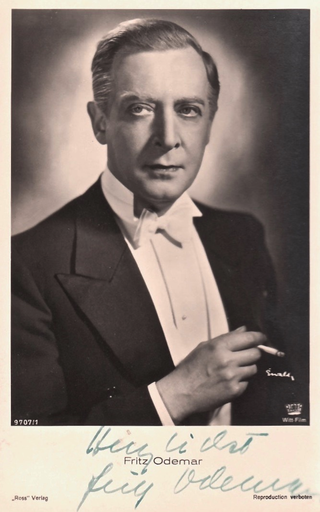
Fritz Odemar was a German film actor. He appeared in more than 150 films between 1927 and 1955. He was born in Hannover, Germany and died in Munich, West Germany. Odemar's father was the actor Fritz Odemar Sr..
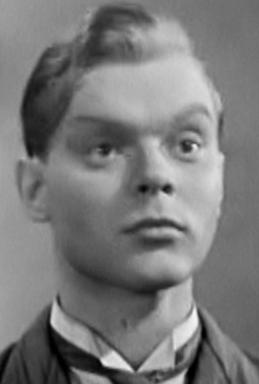
Hans Richter was a German film actor. He appeared in more than 130 films between 1931 and 1984, mostly in supporting roles. He was born in Brandenburg, Germany and died in Heppenheim, Germany.

Carl Peters is a 1941 German historical drama film directed by Herbert Selpin and starring Hans Albers, Karl Dannemann, and Fritz Odemar. It was produced as an anti-British propaganda film during the Second World War.

Vienna Blood is a 1942 German operetta film, based on the 1899 operetta of the same name. With box-office takings of seven million Reichsmarks, it was one of the most financially successful films of the Nazi era.

Goodbye, Franziska is a 1941 German romance film directed by Helmut Käutner and starring Marianne Hoppe, Hans Söhnker and Fritz Odemar. It portrays the relationship between a globetrotting reporter and his devoted wife. The film was remade in 1957.
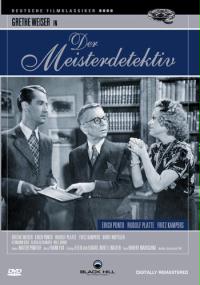
The Master Detective is a 1944 German comedy film directed by Hubert Marischka and starring Rudolf Platte who plays a private detective. The film's art direction was by Gustav A. Knauer and Arthur Schwarz.

Knockout is a 1935 German sports film directed by Carl Lamac and Hans H. Zerlett and starring Anny Ondra, Max Schmeling, and Hans Schönrath. After impressing a boxing trainer during a brawl over a woman, a young man is recruited and trained to be a boxer. He fights and defeats the British champion.

Woman Made to Measure is a 1940 German comedy film directed by Helmut Käutner and starring Hans Söhnker, Leny Marenbach and Dorit Kreysler. Produced by Terra Film, it was shot at the Babelsberg Studios in Berlin. The film's sets were designed by the art director Willi Herrmann. It was based on the play of the same title by Erich Kästner.

The Chaste Libertine is a 1952 West German comedy film directed by Carl Boese and starring Georg Thomalla, Joe Stöckel and Grethe Weiser. It was based on a popular stage farce of the same title by Franz Arnold and Ernst Bach which had previously been turned into the 1931 film The Night Without Pause.

Twelve Hearts for Charly is a 1949 German musical comedy film directed by Fritz Andelfinger and Elly Rauch and starring Willy Fritsch, Heli Finkenzeller and Dorit Kreysler. It was shot at the Göttingen Studios. The film was temporarily banned in the American zone of occupation because of its perceived negative portrayal of American soldiers.

Knall and Fall as Imposters is a 1952 Austrian-German comedy film directed by Ulrich Bettac and Hubert Marischka and starring Hans Richter, Rudolf Carl and Curd Jürgens. It was followed by a 1953 sequel Knall and Fall as Detectives.
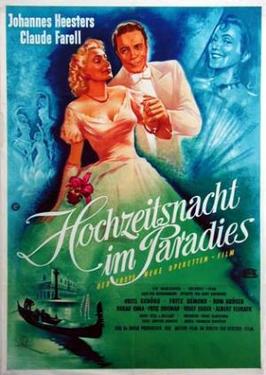
Wedding Night in Paradise is a 1950 West German musical comedy film directed by Géza von Bolváry and starring Johannes Heesters, Claude Farell, and Gretl Schörg. It was shot at the Wiesbaden Studios and on location in Venice. The film's sets were designed by the art director Paul Markwitz and Fritz Maurischat. It is an operetta film, based on the 1942 stage work of the same title.
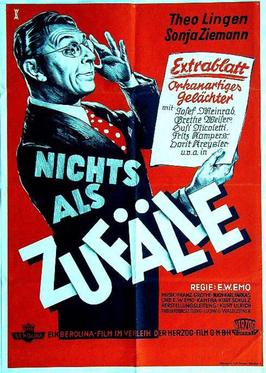
Nothing But Coincidence is a 1949 West German comedy film directed by E. W. Emo and starring Theo Lingen, Sonja Ziemann, and Josef Meinrad. It was shot at the Göttingen Studios. The film's sets were designed by the art directors Hans Ledersteger and Ernst Richter.

Ghost in the Castle is a 1947 German comedy horror film, directed by Hans H. Zerlett and starring Margot Hielscher, Fritz Odemar, and Albert Matterstock.
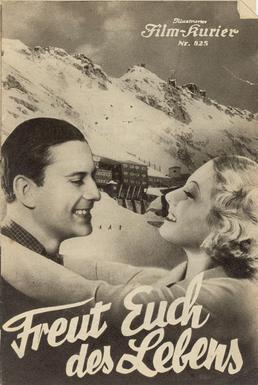
Enjoy Yourselves is a 1934 German musical comedy film directed by Hans Steinhoff and starring Dorit Kreysler, Ida Wüst and Wolfgang Liebeneiner. The film's sets were designed by the art directors Artur Günther and Benno von Arent. It premiered at the Ufa-Palast am Zoo in Berlin.

Fresh Wind from Canada is a 1935 German comedy film directed by Erich Holder and starring Max Gülstorff, Dorit Kreysler and Paul Hörbiger. It was shot at the Babelsberg Studios in Potsdam outside Berlin. The film's sets were designed by the art directors Erich Kettelhut and Max Mellin.

The King's Prisoner is a 1935 German historical comedy film directed by Carl Boese and starring Michael Bohnen, Paul Kemp, and Susi Lanner. It is based around the development of Meissen porcelain during the eighteenth century, particularly the role of the alchemist Johann Friedrich Böttger. It was shot at the Bavaria Studios in Munich. The film's sets were designed by the art director Max Seefelder.

Wedding with Erika is a 1950 West German musical comedy film directed by Eduard von Borsody and starring Marianne Schönauer, Wolfgang Lukschy and Dorit Kreysler.

Cabaret is a 1954 West German drama film directed by Willi Forst and starring Paul Henreid, Eva Kerbler and Fritz Schulz. It was shot at the Bavaria Studios in Munich. The film's sets were designed by the art director Willy Schatz and Werner Schlichting.
The Flower Girl from the Grand Hotel is a 1934 German drama film directed by Carl Boese and starring Elsa Merlini, Georg Alexander and Hans Brausewetter. The film's sets were designed by the art directors Gustav A. Knauer and Alexander Mügge. A separate Italian-language version The Lucky Diamond was also produced starring Merlini with a different supporting cast.



















